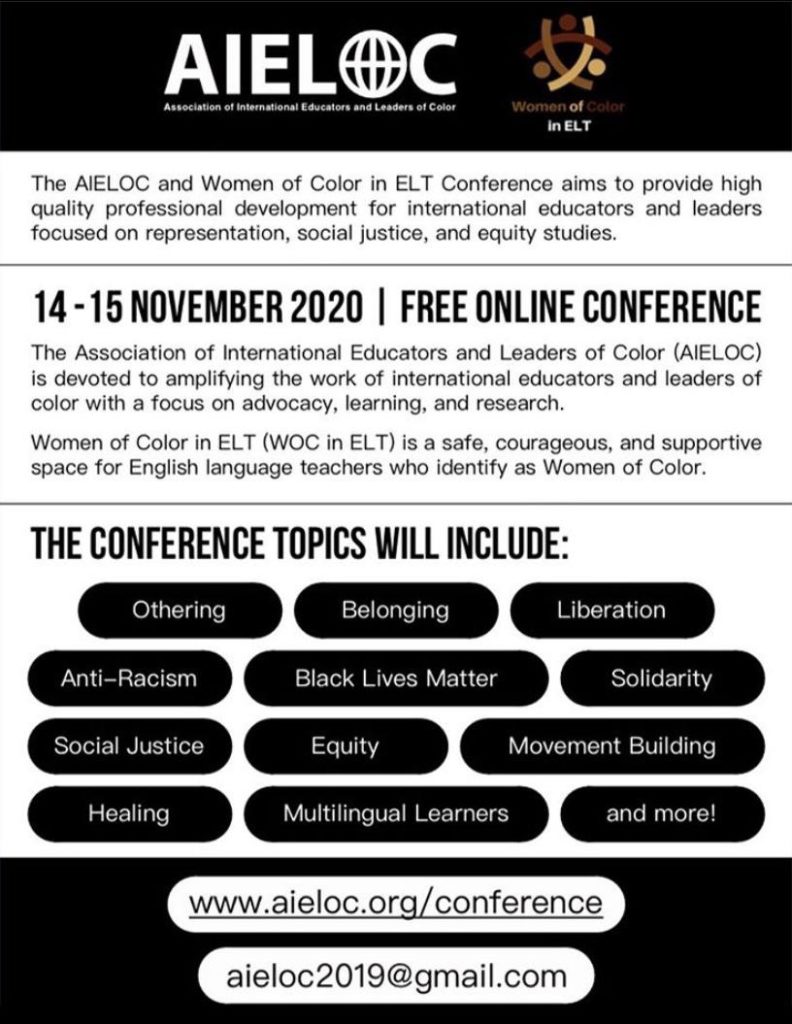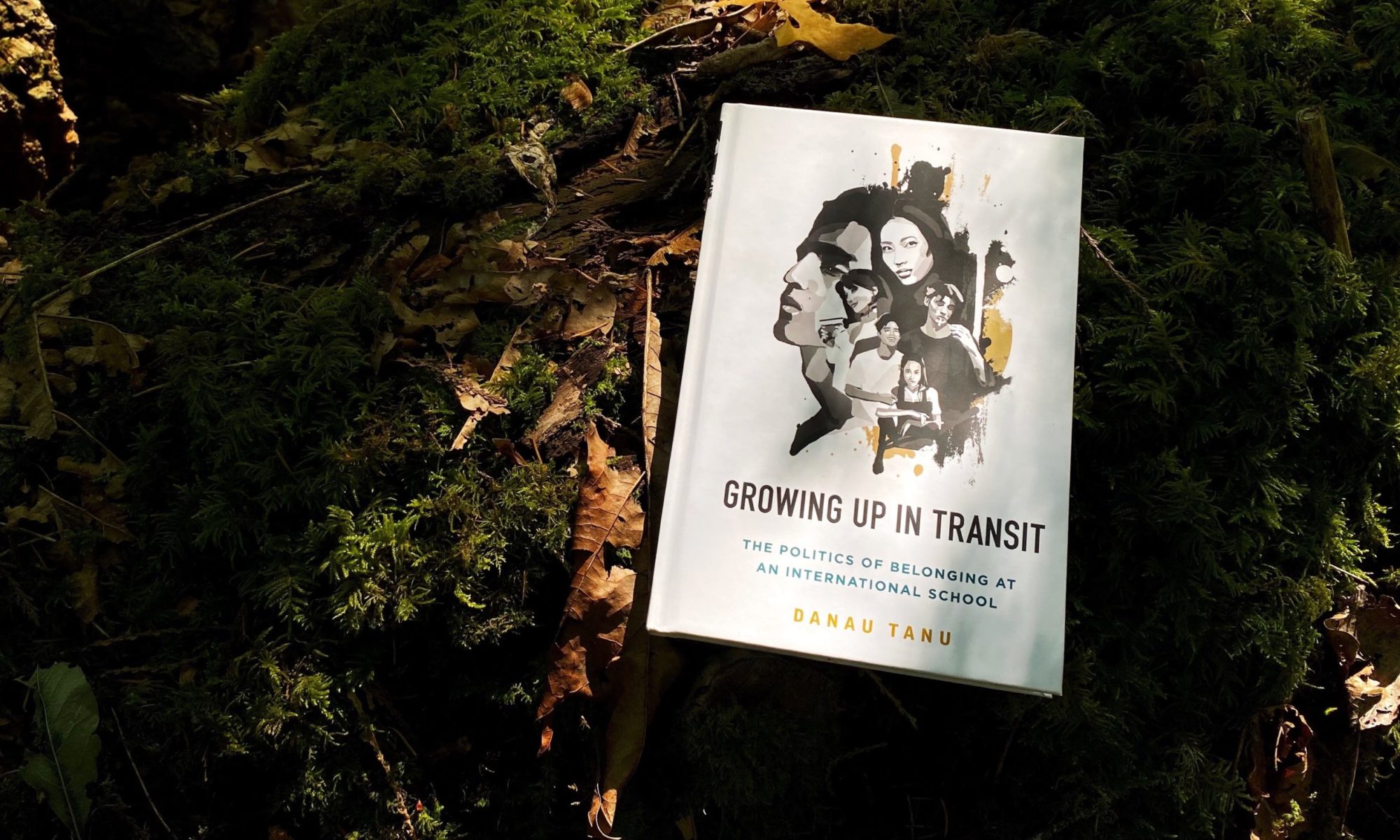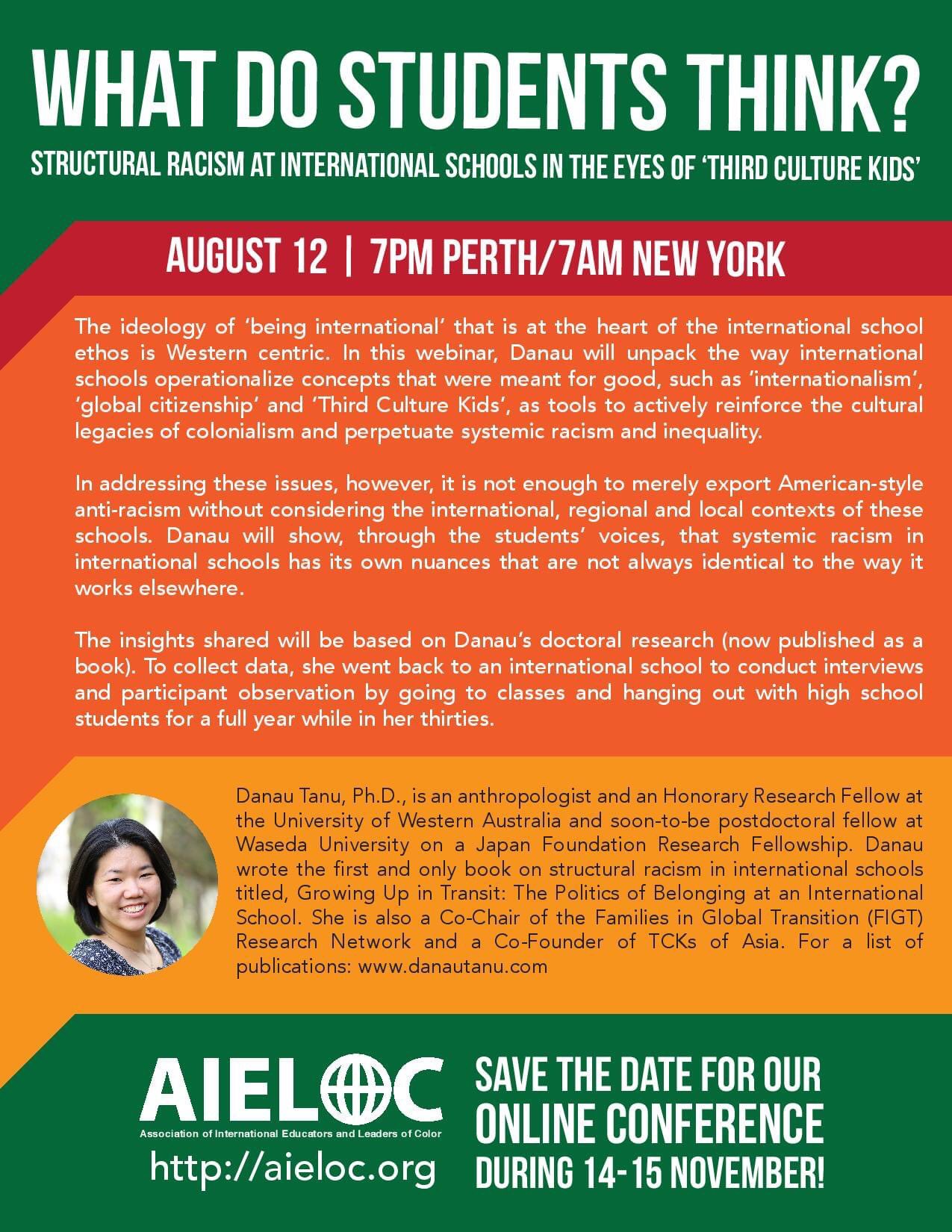The Association of International Educators and Leaders of Color (AIELOC) has joined hands with Women of Color in ELT to host a free online conference on November 14-15, 2020.

I’ll be speaking on the first day on: Why are all the local kids sitting together in the cafeteria? (Saturday, November 14 at 9:30AM New York (EST) / 3:30PM Berlin / 10:30PM Singapore & Perth.)
I’ll be speaking alongside a host of selected speakers, many of whom have been advocating for diversity in the international education sector for awhile. Among those who I know or have heard of are:
Amanda Bates who is the founder of The Black Expat and hosts The Global Chatter podcast.
Jasmine Cochran who was interviewed by the BBC in the wake of the George Floyd’s death as the news and protests began affecting students in her international school classroom. She was interviewed by Sundae Bean of the Expat Happy Hour.
Dominique Blue who is an international educator and part of the AIELOC Advisory Council. She is an advocate of diversity and has been a great supporter of TCKs of Asia and the research that I do.
Daniel Wickner who is an international educator and has been advocating for the importance of affirming students’ identities within the classroom.
To register or for more details, visit the AIELOC website. Scroll down to find the speaker bios, schedule/agenda, and session descriptions for each day.
Why are all the local kids sitting together in the cafeteria?
Saturday, November 14. 9:30AM New York (EST) / 3:30PM Berlin / 10:30PM Singapore & Perth.
In 1997, Beverly Tatum wrote that, upon seeing a group of Black students on an American campus, “The question on the tip of everyone’s tongue is ‘Why are the Black kids sitting together?’ Principals want to know, teachers want to know, White students want to know, the Black students who aren’t sitting at the table want to know.” The same was true at the international school where Danau Tanu conducted her doctoral research, except the main concern was the “local kids” of the host country and the “Korean kids.” These students were seen as “self-segregating” and “not international.” But were they really?
In this session, Danau will demonstrate how the biases and prejudices held by the administrators and educators at the international school contributed to the issue of “self segregation” on their campus. The mostly white, Anglophone teachers acted as gatekeepers for the dominant culture of the school and determined who was considered “international” and who was accused of “self-segregating.” The expectation they placed on students to assimilate into the dominant school culture acted as a crucial push factor that caused students to retreat into their language groups. Danau will also show that the high student turnover rate at schools catering to internationally mobile children can further exacerbate the formation of cliques based on race or language for students who do not fit in with the dominant school culture.
Danau’s research data is based on a yearlong participant observation conducted at an international school and over 130 in-depth, ethnographic interviews with high school students, their parents, alumni and teacher.



